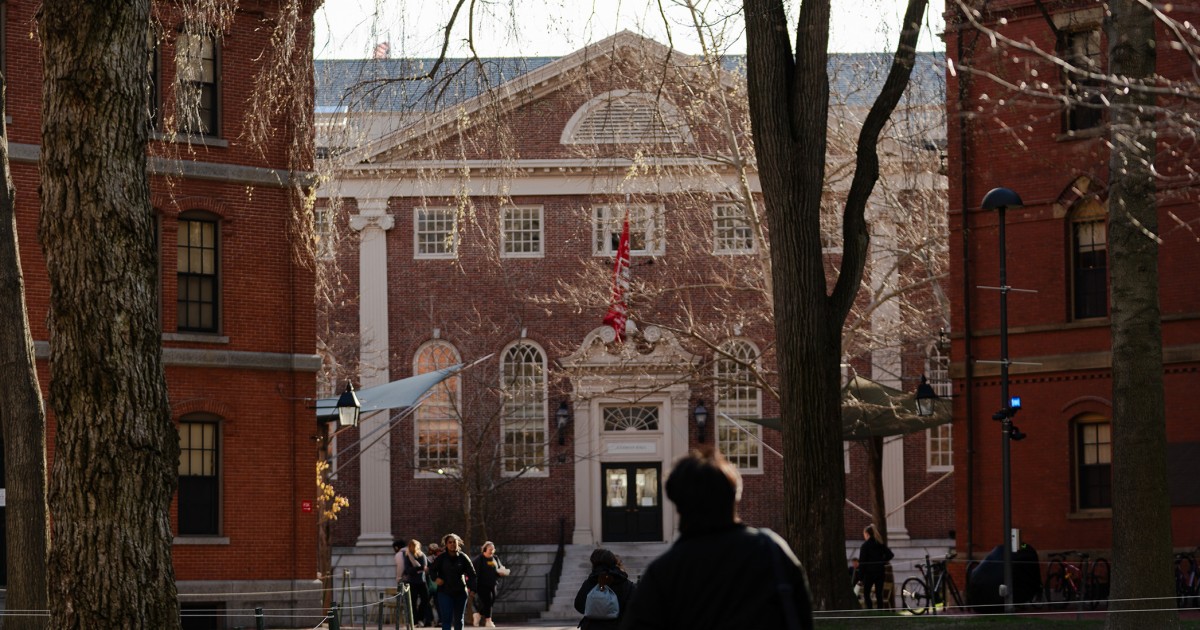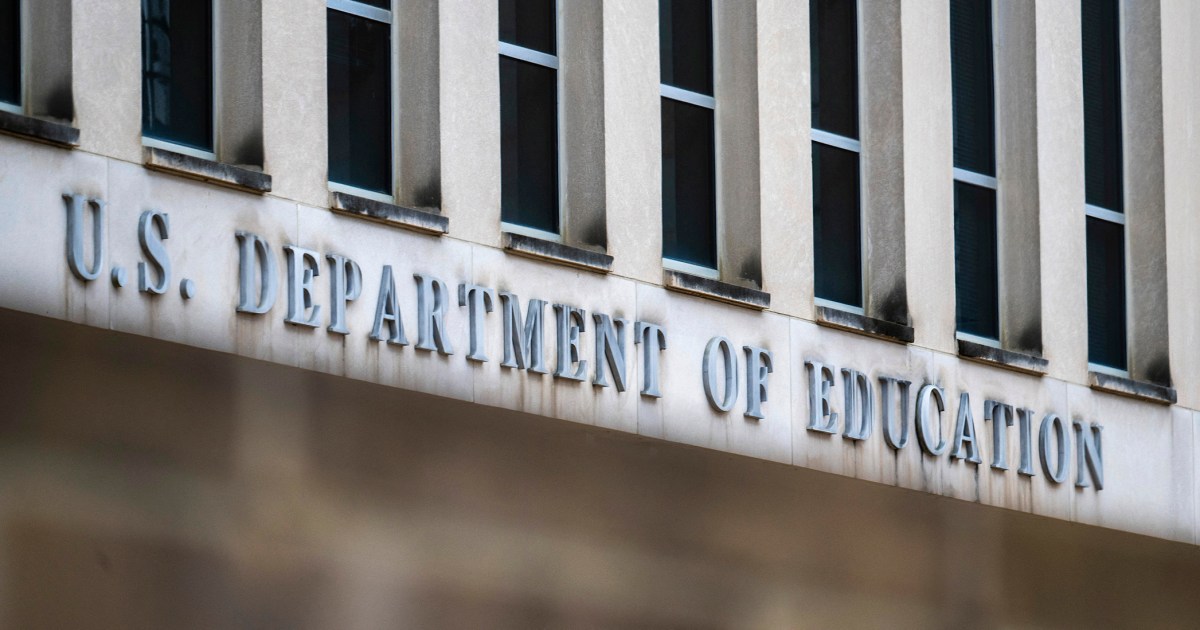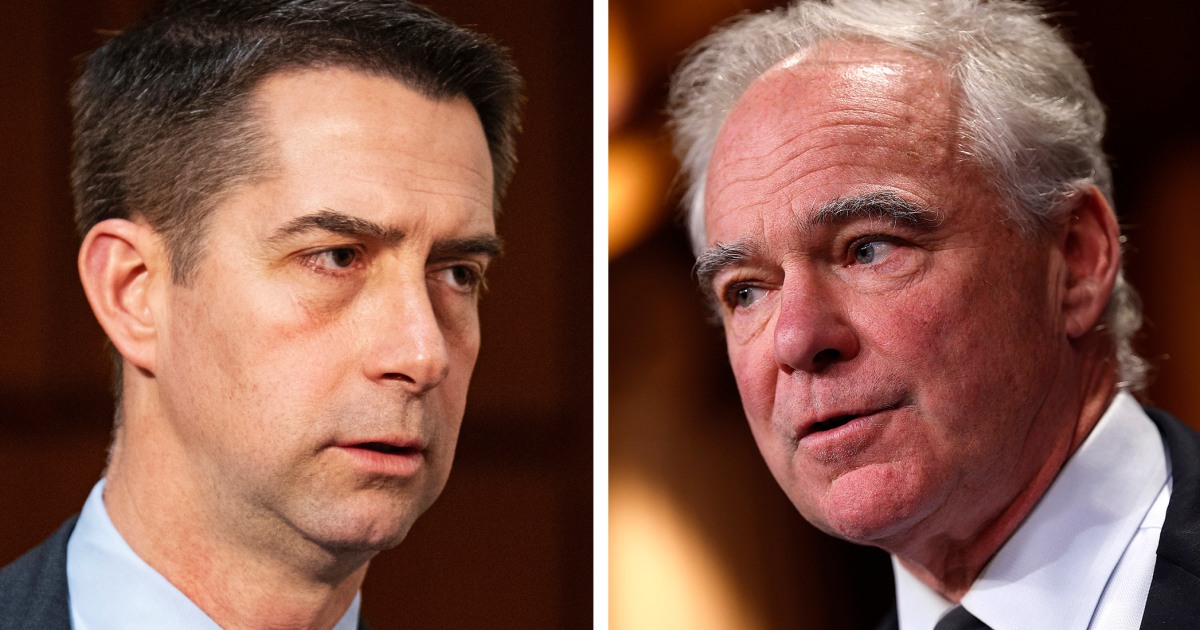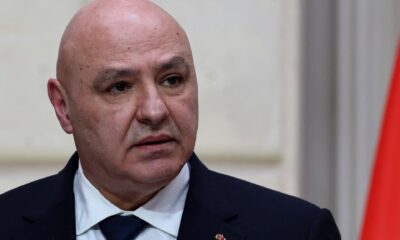Education
Supreme Court weighs parents’ objections to LGBTQ content in elementary schools

WASHINGTON — The Supreme Court on Tuesday considers the latest dispute that pits religious rights against LGBTQ rights as the justices weigh parents’ objections over books made available in a school district’s elementary schools that feature stories about gay and transgender characters.
At issue are books included in the English language arts curriculum in Montgomery County, Maryland. The dispute arose in 2022 after the school board in Montgomery County, a large and diverse jurisdiction just outside Washington, decided it wanted more storybooks reflecting LGBTQ stories to better reflect the people who live there.
One book, “Uncle Bobby’s Wedding,” features a gay character who is getting married. Another, called “Born Ready,” is about a transgender child who wants to identify as a boy.
Some parents objected on religious grounds under the Constitution’s First Amendment, saying their children should be able to opt out of any exposure to the content.
The lead plaintiffs are Tamer Mahmoud and Enas Barakat — a Muslim couple who have a son in elementary school. Other plaintiffs are members of the Catholic and Ukrainian Orthodox churches.
They are not challenging the curriculum itself, just the lack of an opt-out.
A federal judge and the Richmond, Virginia-based 4th U.S. Circuit Court of Appeals both ruled in favor of the school board.
The Supreme Court will determine whether the school board policy burdens religious rights. The justices could then determine whether that burden violates the Constitution, or they could send the case back to lower courts to make that determination.
The parents, represented by the religious liberties group Becket, say that under Supreme Court precedent they have a right to opt out of any instruction that would interfere with their children’s religious development.
The school board is “compelling instruction designed to indoctrinate petitioners’ children against their religious beliefs,” the parents’ lawyers wrote.
The parents have the backing of the Trump administration.
Lawyers for the school board said in court papers that there is no attempt to coerce children and that there was an attempt to allow an opt-out “until doing so became unworkably disruptive.”
The lawyers wrote that the court record is “devoid of evidence that petitioners or their children are compelled or pressured to modify their religious beliefs or practice.”
The school board also asserts that although the books are in classrooms and available for children to pick up, teachers are not required to use them in class.
The Supreme Court has a 6-3 conservative majority that often backs religious rights, including in cases involving conflicting arguments made by LGBTQ rights advocates. In 2023, for example, the court ruled in favor of a Christian web designer who refused to work on same-sex weddings.
The court is hearing another major religious case next week when it considers whether to approve the country’s first public religious charter school.
In its next term, which starts in October, the court will consider a challenge to state laws that ban “conversion therapy” aimed at young people questioning their sexual orientations or gender identities.
Education
Harvard sues federal government after Trump administration slashed billions in funding

Harvard University sued the Trump administration on Monday after the federal government said it was freezing $2.2 billion in grants and sought what university officials described as “unprecedented and improper” control over the Ivy League institution.
“The consequences of the government’s overreach will be severe and long-lasting,” Harvard President Alan Garber said in a message Monday announcing the lawsuit.
The suit, filed in federal district court in Massachusetts, accuses the administration of flouting the First Amendment and other federal laws and regulations. The 51-page complaint asks a federal judge in Massachusetts to declare the president’s “freeze order” unconstitutional and to order the government to reverse any terminations of — or freezes to — federal funding.
Last week, the Trump administration announced that it was freezing federal funding after the school refused to accept demands that the administration has said aim to address antisemitism on campus.
Among the government’s demands were an audit of student body views and a ban on international students who are “hostile to the American values and institutions.”
In Monday’s suit, the university argued that the funding freeze is not related to the administration’s antisemitism concerns.
“The Government has not — and cannot — identify any rational connection between antisemitism concerns and the medical, scientific, technological, and other research it has frozen that aims to save American lives, foster American success, preserve American security, and maintain America’s position as a global leader in innovation,” the lawsuit said. “Nor has the Government acknowledged the significant consequences that the indefinite freeze of billions of dollars in federal research funding will have on Harvard’s research programs, the beneficiaries of that research, and the national interest in furthering American innovation and progress.”
The White House did not immediately respond to a request for comment Monday.
After Harvard said it would not comply with the administration, President Donald Trump suggested the university should lose its tax-exempt status — a move that could have severe repercussions for the school.
Harvard has said the government has no legal basis to rescind its status.
The escalating battle between Harvard and the federal government comes amid a broader effort from the administration to target what it describes as a failure to deal with antisemitism on college campuses.
Last month, Columbia University agreed to a list of administration demands after the government said it would cut $400 million in funding over “inaction in the face of persistent harassment of Jewish students.”
The administration also hit Princeton University with $4 million in cuts in part for promoting what Commerce Secretary Howard Lutnick described as “climate anxiety” through a lab that develops atmospheric and oceanic models. The school was one of several universities to sue the administration last week over what the lawsuit said was a “flagrantly unlawful” move to cut research funding.
Education
Involuntary collection of defaulted student loans to resume, Education Department says

The U.S. Department of Education on Monday said it’s restarting “involuntary” repayment of federal student loans that are in default.
The payments were paused during the first term of President Donald Trump in 2020 as a response to the Covid pandemic.
“Beginning May 5, the department will begin involuntary collection through the Treasury Department’s offset program, which withholds payments from the government — including tax refunds, federal salaries and other benefits — from people with past-due debts to the government,” the department said in a statement.
Wages will be garnished following a 30-day warning, it added.
An estimated 5.3 million borrowers are in default on their federal student loans, though the department said that number could reach 10 million in a few months. Repayment will be administered by the U.S. Department of Treasury, and affected borrowers will get notices in the next two weeks, the department said in a statement.
The administration of President Joe Biden continued to pause repayment under a campaign promise to relieve student debt, but the U.S. Supreme Court ruled in 2023 his plan was not constitutional because it did not fall under congressional approval.
“American taxpayers will no longer be forced to serve as collateral for irresponsible student loan policies,” said U.S. Secretary of Education Linda McMahon. “The Biden Administration misled borrowers: the executive branch does not have the constitutional authority to wipe debt away, nor do the loan balances simply disappear.”
Education
As a nationwide push to ban cellphones in schools grows, Congress looks to get involved

FAIRFAX, VA. — A bipartisan duo of senators is looking to back the efforts a growing number of states around the country are taking to ban or limit students’ use of cellphones in classrooms.
A recent Associated Press study found that nine states have already implemented statewide restrictions related to cellphones in schools, while another 39 are exploring them. That’s caught the attention of Sens. Tom Cotton, R-Ark., and Tim Kaine, D-Va., who have proposed a bill to provide federal funding to incentivize classroom cellphone restrictions.
“It’s an issue where we can come together and try to empower parents and school districts to make the right choices for their kids and their students,” Cotton said.
The legislation would provide up to $5 million to school districts nationwide to study and develop pilot programs to lay the groundwork for long-term cellphone bans.
“I think all the districts are grappling with two big challenges: maximizing student learning, maximizing student mental health. And we think excessive cellphone usage gets in the way of both,” Kaine said.
Kaine’s home state of Virginia was one of the first in the nation to implement a cellphone ban in schools. Republican Gov. Glenn Youngkin issued an executive order last year instructing schools to comply with Virginia Education Department guidance for cellphone use in schools. The policy allows high schoolers to be on their phones between periods and in lunch, but not instructional periods. Middle schoolers have no access to their phones throughout the school day.
In Fairfax, Robinson Secondary School has close to 4,000 middle school and high school students on campus. The high school students place their phones in caddies in the front of a classroom before the period starts and can retrieve them when the period ends. Middle schoolers put their phones into a magnetic triggered pouch at the start of the school day that they keep with them. They can unlock the pouches to get access to their phones as they leave for the day.
“The kids are on board, the community is on board and we’ve had a lot of success,” said Tracey Phillips, the principal at Robinson Secondary School who’s responsible for implementing the program.
The goal in the Fairfax district is not to just ban phones, but also to help students there develop healthy habits with the devices while working to make sure they do not interrupt the learning process.
“I think we’re going to have to find out a way to balance the use of using cellphones as a tool in school and for use for the students’ needs, but also making sure that we protect instructional time,” said Dr. Nardos King, the chief equity officer for Fairfax County Public Schools who is overseeing the cellphone policy for schools across the district.
Administrators and teachers are discovering that there isn’t a one-size-fits-all solution when it comes to cellphone policies. Kaine and Cotton made clear that they are not looking for the federal government to dictate the policy from Washington.
“Little Rock is going to be different from Fairfax,” Kaine said. “So let the local officials who are responsive to the voters in the town try to figure out what that right balance is.”
Kaine and Cotton’s bill has yet to receive consideration in the Senate. They are hoping that with the bipartisan support it already has, the legislation could be tacked on to a broader bill that would expedite its passage through the House and the Senate.
-

 Sports1 day ago
Sports1 day agoNBA Playoffs: Steph Curry leads Golden State Warriors to Game 1 win and more from Sunday’s action
-

 Middle East2 days ago
Middle East2 days agoLebanese president says disarming Hezbollah ‘delicate’ as Israel kills two | Israel attacks Lebanon News
-

 Europe5 hours ago
Europe5 hours agoSimone Biles, Mondo Duplantis win big at 25th Laureus World Sports Awards
-

 Middle East2 days ago
Middle East2 days ago‘Little guest’: How a rescued baby brought two Gaza families together | Israel-Palestine conflict
-

 Conflict Zones1 day ago
Conflict Zones1 day agoJailed for fishing: India-Pakistan tensions trap families in debt, poverty | Border Disputes
-

 Sports1 day ago
Sports1 day agoHolger Rune stuns Carlos Alcaraz to win Barcelona Open and end two-year trophy drought
-

 Sports1 day ago
Sports1 day agoNico Iamaleava commits to UCLA amid transfer portal drama with Tennessee
-

 Sports22 hours ago
Sports22 hours agoMax Verstappen says ‘people can’t handle the full truth’ after Saudi Arabia time-penalty




